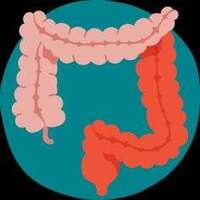Is wheat, a staple in many diets, truly a complete source of protein? This discussion debunks common myths and explains why understanding essential amino acids is crucial for a balanced diet.
Is Wheat a Complete Protein? The Reality
While wheat (used in roti) contains protein (approx. 2-3g per roti), it is not a complete protein. A complete protein provides all nine essential amino acids (EAAs) in adequate proportions. Wheat specifically lacks lysine, making it an incomplete protein source. Therefore, relying solely on wheat cannot fulfill your body's total protein requirements for functions like muscle building or repair.
How Daily Indian Meals Contribute to Protein Intake
The good news is that traditional Indian meals often naturally complement wheat's protein deficiencies:
- Breakfast (e.g., Paratha): Often low in protein unless supplemented with milk, curd, eggs, or paneer.
- Lunch (Roti + Dal/Lassi): Typically well-balanced. Dal, vegetables, and dairy like curd or buttermilk effectively complete the protein profile.
- Dinner (Roti + Sabzi): Can be low in protein if only paired with simple vegetable preparations. Adding curd, paneer, or dal at dinner helps ensure a complete protein intake.
The Importance of Lysine in Your Diet
Lysine is a critical essential amino acid that your body cannot produce on its own. Wheat is notably low in lysine, making it the limiting EAA in its protein composition. To ensure you get sufficient lysine and other EAAs, it's essential to combine wheat with complementary protein sources such as:
- Dal (lentils)
- Paneer (Indian cheese)
- Curd/Yogurt
- Milk
- Eggs
Daily Essential Amino Acid Requirements (WHO Guidelines)
Understanding your daily EAA needs is vital for overall health. For a 60 kg person, here’s a summary of WHO recommended daily essential amino acid intake:
| Amino Acid | Total (60 kg) |
|---|---|
| Histidine | 600 mg |
| Isoleucine | 1,200 mg |
| Leucine | 2,340 mg |
| Lysine | 1,800 mg |
| Methionine + Cysteine | 900 mg |
| Phenylalanine + Tyrosine | 1,500 mg |
| Threonine | 900 mg |
| Tryptophan | 240 mg |
| Valine | 1,560 mg |
Source: World Health Organization (WHO) Guidelines.
Considerations for Wheat Consumption
While wheat is a dietary staple, its high gluten content can be hard to digest for some. It's generally advised to moderate intake; typically, 5-6 rotis a day are considered a reasonable limit, depending on individual dietary needs and activity levels.
For more detailed nutritional information, consult resources like Healthline.
